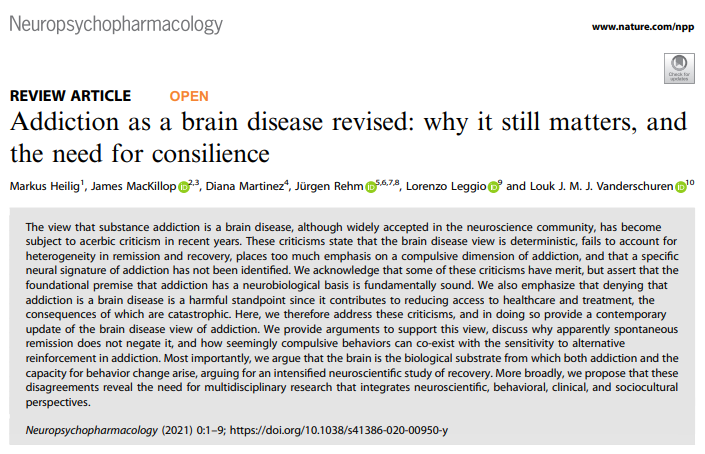
THREAD
1/
The other day, I tweeted about a recent study that adds to a growing body of evidence demonstrating the effectiveness of masks in preventing the spread of COVID-19...
1/
The other day, I tweeted about a recent study that adds to a growing body of evidence demonstrating the effectiveness of masks in preventing the spread of COVID-19...
https://twitter.com/psychunseen/status/1471858981740158979?s=20
2/
Here it is again--note that it's not a naturalistic or epidemiologic study, but a modeling study based on known information about the penetration of SARS-CoV-2 sized particles through N95/KN95 masks.
pnas.org/content/118/49…
Here it is again--note that it's not a naturalistic or epidemiologic study, but a modeling study based on known information about the penetration of SARS-CoV-2 sized particles through N95/KN95 masks.
pnas.org/content/118/49…
3/
Now, my tweet only got 178 engagements, 22 likes, 18 retweets, and 2 replies to date, so it didn't make it very far in the Twitterverse.
But it did catch the attention of this one guy who responded: "lol. k"...
Now, my tweet only got 178 engagements, 22 likes, 18 retweets, and 2 replies to date, so it didn't make it very far in the Twitterverse.
But it did catch the attention of this one guy who responded: "lol. k"...
https://twitter.com/CarsonBabich/status/1471864859616808962?s=20
4/
...and retweeted this graph (w/ >1000 likes & 366 retweets to date) of COVID cases rising sharply in Nov in Germany, where they've had N95/K95 mask mandates in place for awhile, and used that to claim that their commitment to "science" had "failed."
...and retweeted this graph (w/ >1000 likes & 366 retweets to date) of COVID cases rising sharply in Nov in Germany, where they've had N95/K95 mask mandates in place for awhile, and used that to claim that their commitment to "science" had "failed."
https://twitter.com/ianmSC/status/1465040053952921603?s=20
5/
But let's take a closer look at this claim. First of all, no one claims that masks, or social distancing, or lockdowns, or even vaccines are magic armor reducing COVID risk to zero.
So, what we want to know is just how much such interventions reduce the risk, if at all.
But let's take a closer look at this claim. First of all, no one claims that masks, or social distancing, or lockdowns, or even vaccines are magic armor reducing COVID risk to zero.
So, what we want to know is just how much such interventions reduce the risk, if at all.
6/
For Germany, we'd want to know how many COVID cases would've occurred had they not been "following science."
One rough way to estimate that is to look at COVID cases per capita in Germany compared its 7 neighboring border countries.
Suddenly, Germany's looking pretty good.
For Germany, we'd want to know how many COVID cases would've occurred had they not been "following science."
One rough way to estimate that is to look at COVID cases per capita in Germany compared its 7 neighboring border countries.
Suddenly, Germany's looking pretty good.

7/
And here's another study of the actual effects of mask mandates in Germany, published in Dec. 2020.
"Weighing various estimates, we conclude that 20 days after becoming mandatory, face masks have reduced the number of new infections by around 45%."
pnas.org/content/117/51…
And here's another study of the actual effects of mask mandates in Germany, published in Dec. 2020.
"Weighing various estimates, we conclude that 20 days after becoming mandatory, face masks have reduced the number of new infections by around 45%."
pnas.org/content/117/51…
8/
Meanwhile, in the US, here's @maolesen's comparison of COVID death rates in "red" vs. "blue" states.
The reason for this difference isn't clear, but it's likely due, at least in part, to partisan differences in mask wearing and vaccination rates.
Meanwhile, in the US, here's @maolesen's comparison of COVID death rates in "red" vs. "blue" states.
The reason for this difference isn't clear, but it's likely due, at least in part, to partisan differences in mask wearing and vaccination rates.
https://twitter.com/maolesen/status/1471188829302317056?s=20
9/
So yeah, #WearADamnMask. #GetVaccinatedNow. #GetBoostedNow. #trustscience.
And no, the rise of cases in Germany last month doesn't support the claim that following science is a fail.
im Gegenteil. or, in plainer English, "that's bullshit."
So yeah, #WearADamnMask. #GetVaccinatedNow. #GetBoostedNow. #trustscience.
And no, the rise of cases in Germany last month doesn't support the claim that following science is a fail.
im Gegenteil. or, in plainer English, "that's bullshit."
unroll please @threadreaderapp
• • •
Missing some Tweet in this thread? You can try to
force a refresh








